The world is being (re)ordered. Old powers are facing the rise of new powers. The Global North and Global South are on a clear path to bloc power politics as an alternative to the Western-led international order. The remnants of authoritarianism against democratic societies are on the world stage. The dialectic of order and disorder continues to reorder.
After 1990, liberal democracy won all over the world except China, Cuba, and North Korea. The Soviet Union collapsed and the communist regime was replaced by the authoritarian governments of Boris Yeltsin, Vladimir Putin, and Dmitry Medvedev. During the Cold War from 1945 to 1990, the world order was guided by a bipolar nature. In the meantime, the non-aligned countries carved out their diplomatic niches in the so-called New World Order. The ‘Third World’ or the ‘Global South’ maintained its independence and autonomy in world affairs. From 1990 to 2001, the United States remained a unipolar and unilateral power till the September 11 attack. American capitalist symbols and defenses were under attack by the 9/11 terrorists. It is appropriate to call this interval a world in transition.
After the indomitable adventure of the freedom movement in the colonial states, the developing world and the underdeveloped countries faced the challenge of achieving prosperity and development. Traction in the practice of democracy in domestic society faced enemies against it. After the dark ages of the Iron Curtain were removed, the world opened up. However, the ‘open society‘ has once again faced challenges and threats from anti-liberal and radical elements. The populism we see today is the result of the politics that failed to deliver effective performance. International scholars talk about world order and world disorder.
More precisely, however, the world is being (re)ordered or rearranged. This scenario has emerged due to the proper location of awakened nations. Old powers are facing the rise of new powers. New powers were once ancient powers. They stick to their interests and demands. They are looking for ways to trade and partner with their newly formed groups, including currency transactions. Smaller states are no less important. Like the story of David and Goliath, small countries can also be a source of concern for great powers. Competitiveness – personal, national and international – looms on the horizon.
The ‘open society’ has once again faced challenges and threats from anti-liberal and radical elements. The populism we see today is the result of the politics that failed to deliver effective performance.
The Unipolar Moment post-1990s
From 1990 to 2001, the world was in an interim period. As mentioned above, the bipolar world dominated by the West and the Soviet Union came to an end. But after some time the triumph of liberal democracy could not ensure a stable world order. The distortions of power politics at the domestic and international levels remained a thing of history. Political fault lines and internal conflicts have affected the world’s foreign and security policy. The dynamism of an open society was driven by democratic change. Even the enemies of open society reared their heads. A political commentator noted that America is a unipolar and unilateral power, invincible and dominant in world affairs.
But with the end of the Cold War, the world could not find stability. Balkanization in the former Yugoslavia, conflict in Afghanistan, and other fierce wars in West Asia continued. Political, economic and cultural issues came to the fore in many political societies. Samuel Huntington spoke of the clash of civilizations. Others have advocated dialogue and diplomacy to bridge the gap between East and West or North and South.
The triumph of liberal democracy could not ensure a stable world order. Political fault lines and internal conflicts have affected the world’s foreign and security policy.
The Backlash Against American Unilateralism and Western Hegemony
Countries began to realize their power as globalization and its consequences began with the coming into existence of the World Trade Organization in 1995. However, neoliberal policies started coming under sharp criticism from leftists around the world. Social justice and inequality were in crisis at the forefront of political economy. The Left Front strongly criticized the capitalist or corporate world for neglecting the underprivileged. Terrorism fueled dominance and domination. In 2001, America was attacked by elements influenced by regions harboring hatred against America and Western hegemony and their prosperity, advancing Islamic theocracy.
The world was about to be rearranged further by this attack. The new millennium was a turning point for emerging powers in world affairs. Regional powers were emerging and some major countries were protesting the hegemony of the Western bloc, especially the US and Europe. Germany and France led the European Union, promoting unity and integration of Europe. The United States of Europe is in the political imagination of becoming a credible and alternative power group to the United States of America. Before the Cold War, the regional groupings in other regions around the world followed this pattern to some extent. States, big or small, tried to leverage and manipulate each other to suit their national and international interests. Because of the human conditions that arose when the policies failed to serve them or their political leaders, liberalism became critical and modified into illiberalism. Critical theory has been realized in many democratic countries. Jürgen Habermas’ ideas and the Frankfurt School of Critical Theory were the preferred teachings of leftist thinkers for mass emancipation and liberation from the fallacies of capitalist democracy.
You May Like: Stellar Performance of Afghanistan Currency
The World of Today: Interdependence, De-risking, Divisions, Rising Authoritarianism
In 2023, the Global North and Global South are on a clear path to bloc power politics as an alternative to the Western-led international order. There is also tension and conflict between East and West. In this same world, with global aspirations and democratic urges, there are common interests and different views on international and global policy. De-risking or de-coupling policies have been pronounced. Global interdependence and interconnectedness are the trends.
However, widespread criticism of the liberal nature has impaired the civic society. Poverty, sustainable development and environmental concerns have become the main agenda without borders. Rich and poor countries are not immune to migration and global public health issues. The Post-Western world has complex problems and issues that require finance, technology and rich human capital. Global divisions need to be eradicated, and freedom, liberalism and democracy must be pursued to achieve universal prosperity in every corner of the world. The remnants of authoritarianism against democratic societies are on the world stage. Due to internal and external determinants, the structure of governance and economics could not take the right direction. However, international development partners helped the state to recover.
De-risking or de-coupling policies have been pronounced. Global interdependence and interconnectedness are the trends.
Good global governance is essential to respect the principles and objectives set out in the United Nations Charter. The only refuge for powerless countries is in multilateral and intergovernmental bodies. Activities in such forums can help democratize international relations. Political principles in domestic societies have universal characteristics despite different identities. But such thoughts tend to appear in the power politics of big countries, hegemony and their activities in their spheres of influence.
Also Read: India-France In Transcaucasia- A Part Of The Problem Or A Solution
The Uncertain Yet Hopeful Future
In the coming decades, the crises and trends in politics, and the transformation of society can be assessed as on the path to critical stages. As old issues pile up and new issues arise, existing mechanisms must address these pending needs, demands and interests. To achieve the rule of law, the principles of democratic strengthening and good governance should be imbibed. A political society can make use of diplomacy to foster cooperation and harmony in times of anger and resentment within and between. To ensure the balance of democratic power politics, the internal situation must be stable. A strategy to achieve a positive sum game, in which the world is reordered by a mixture of moral-politik and realpolitik, can be followed.
A strategy to achieve a positive sum game, in which the world is reordered by a mixture of moral-politik and realpolitik, can be followed.
Where truth is pursued and trust is earned, conflict gets mediated and prosperity proceeds with boundless optimism. There is hope in a reordering of the world where human dignity and human security are embodied in letter and spirit. To be precise, the democratic system is the real world of re-alignment.
From the beginning of the 21st century, it has been seen that globalization is bringing the world closer. Despite much anger and irritation, geopolitics is gaining momentum. World leaders are practicing their power politics outside their territories as well. Worldly thinking is becoming common in the minds of many. A conversation about the world we live in, and a desire to explain and understand world affairs are a favorite to some. It is a human tendency to experience and understand the world. Outside the academic realm of churning out theories of international relations, its practice in real-world situations affects the lives of many, including practitioners, observers, and academics. The dialectic of order and disorder continues to reorder. German philosopher Hegel is right about the complex process of history and ideas.
The cycle of civilization and system goes through each phase and situation equally in the ancient, medieval and modern eras. Myths – Western and Eastern versions of gods, goddesses, and demons – as aesthetics are seen in world activities. Apart from the heroes covered in such literature, scholars are excavating the history of the people. It enriches the discourse and evokes a response that democratizes politics. Against deconstructionists, constructivists underline what makes up the world around us – physically, spiritually and technologically – this may seem like a fragmented world and mindset.
Only the will of humanity can unite where discord can hinder, where conflict or war is futile, peace enters, and where ideas of poverty are destroyed, hope remains to bring prosperity.
The world is a complex interplay of forces that appear to be particular or relative but have a universal or absolute mosaic of emotions and reasons. Diverse and plural settings of the world are reordered as if it is a process of universal knowledge. We have entered an era where every voice and opinion matters, and where similarities and differences are connected. In a world with competing actors and rival theories, many debates have been taking place. Only the will of humanity can unite where discord can hinder, where conflict or war is futile, peace enters, and where ideas of poverty are destroyed, hope remains to bring prosperity.
With these thought-provoking understandings, on the one hand, it seems that the world is opening up, while on the other hand, the neo-medieval style has also appeared on the surface. Today, it is not new to see signs of world restructuring. This world is the manifestation of global nature and human nature. Perhaps it is a commentary on leaders and worldviews that have adopted politics and diplomacy to advocate for their political imagination and contemporary context.
Disclaimer: The views expressed in this article are of the author solely. TheRise.co.in neither endorses nor is responsible for them. Reproducing this content without permission is prohibited.
View the PDF Version Below:
About the author
Mr. Kunwar is a politics and international relations analyst based in Kathmandu.

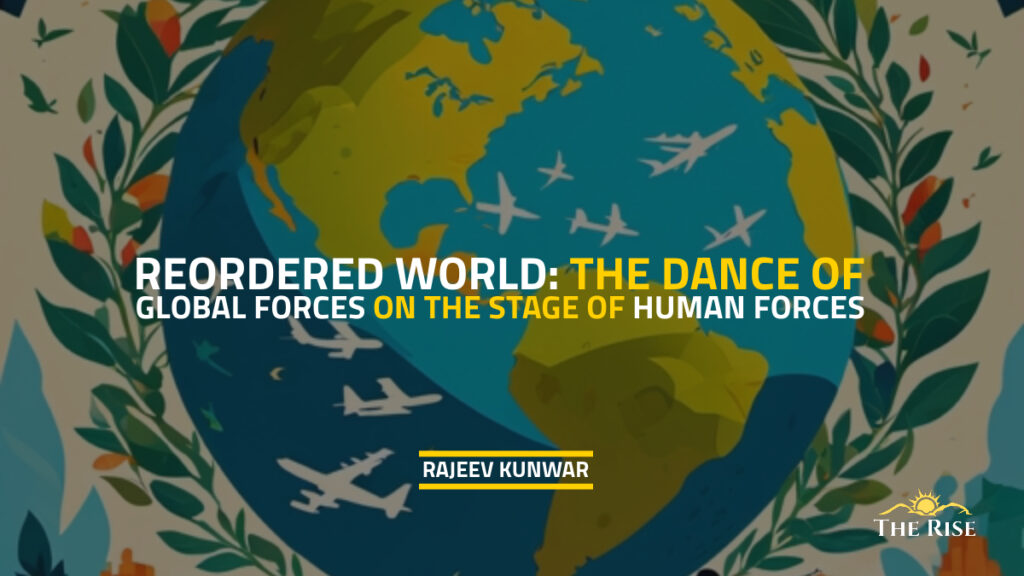

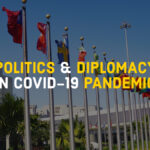
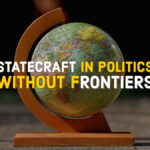
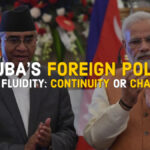
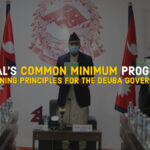
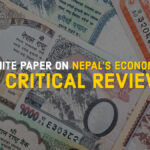
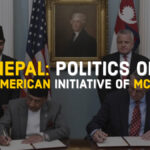
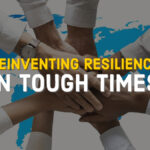
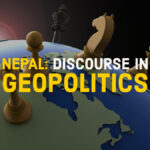
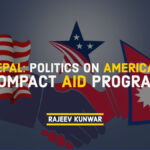
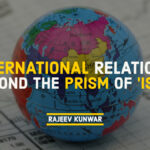
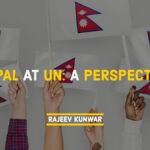
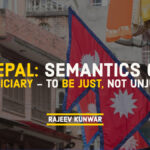
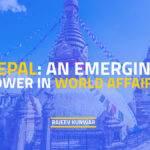
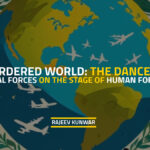
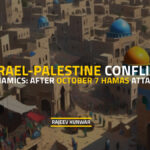
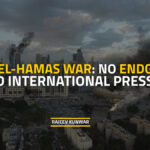
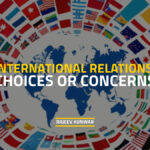

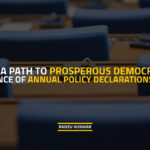
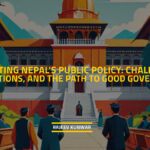
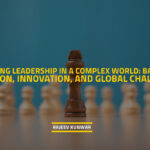
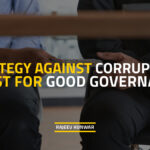
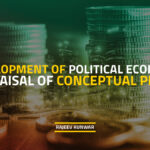


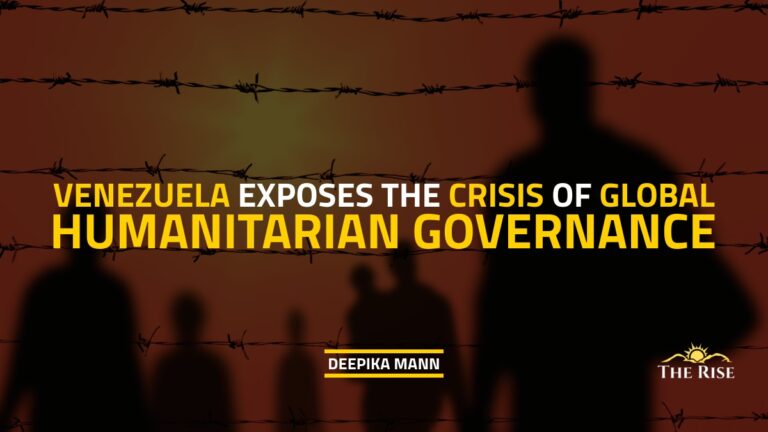



Pingback: The Israel-Hamas War Brief - TheRise.co.in
Pingback: Israel-Hamas War: Gaza Hospital Attack and Biden's Visit